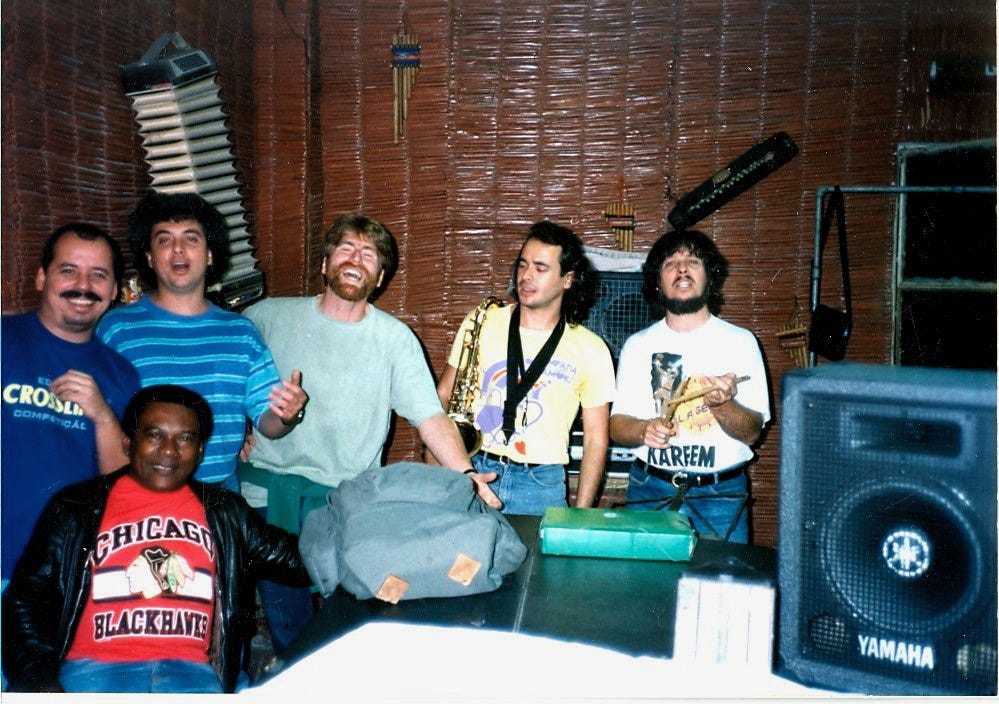After 1981, the Hermeto Pascoal Grupo, with the steady personnel of Carlos Malta on flutes and saxophone, myself on piano and flute, Itiberê Zwarg on electric bass, Marcio Bahia on drums and the late Pernambuco on percussion, had established a firm discipline of daily rehearsals upstairs at Hermeto’s house in the Jabour neighborhood of Rio de Janeiro. We would meet promptly at 2 PM each day and would spend at least 6 hours playing through his compositions, working either from scores he would have just written for us or notating our own individual parts as Hermeto created them from scratch in front of our eyes and ears. Essentially, our musical growth was fueled by the notes we read, wrote, and played together. The increasing complexity of the arrangements conceived by Hermeto demanded an improvement of our music reading and writing skills, and during the times when we were not in rehearsal, we were busy with individual practice time. It was indeed a full-time job, requiring total dedication and discipline. In fact, all of us (except Pernambuco, who remained a resident of Madureira) moved to Jabour so we could maximize our time playing and not spend it commuting from elsewhere.
At our rehearsal at hermeto’s house (L to R): Marcio Bahia, Pernambuco, JSN, our friend Jon Gold, Carlos Malta and Itiberê Zwarg. Notice the thick folder on the piano…
We started to play more and more concerts outside of Rio, traveling by bus for hours (Hermeto would not fly) to many cities in the interior of São Paulo and Minas Gerais. Our gigs would stretch for three or four hours each. The level of energy was very high. We drank muddy brown concoctions made of ground guaraná powder before each show to keep us caffeinated and energetic. The music was intense and so were our connections to each other.
Sometime in the early 1980s we went by bus to the mountain city of Itabira in Minas Gerais, located about 60 miles from the capital city of Belo Horizonte to play a concert for the opening of a brand-new theater in town. Itabira has been a center of iron ore exploration for a long time, and it boasts the reputation of being the birthplace of Carlos Drummond the Andrade, one of the greatest Brazilian poets of all time. It is a hilly town from the colonial period of Brazil with ancient cultural traditions and unique accents in its language.
After soundcheck, we were backstage getting ready to play, and all of us were sorting out the parts each one needed to play the music. In those days, there were no set lists. We kept everything we needed onstage, as Hermeto would call tunes on the spot. Our most prized possessions were our folders with the charts which Hermeto would carefully write for each one, or the sketches we would jot down for the compositions which he would play for us, but not write.
Keep reading with a 7-day free trial
Subscribe to Jovino Santos Neto - Writing from the Heart of Music to keep reading this post and get 7 days of free access to the full post archives.




